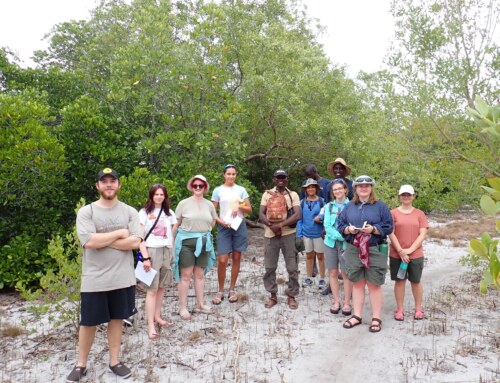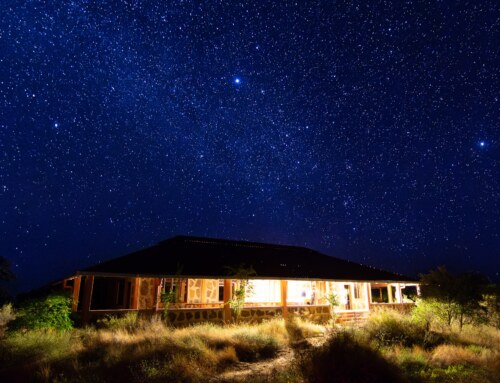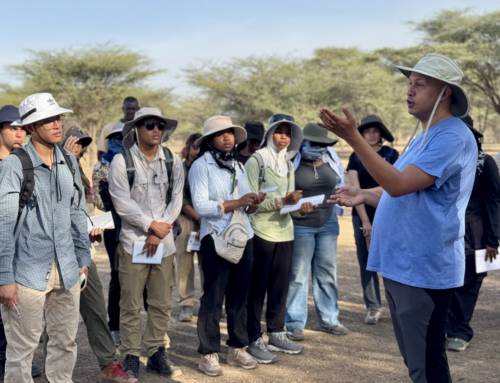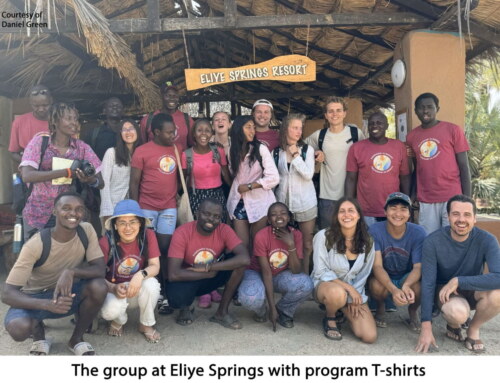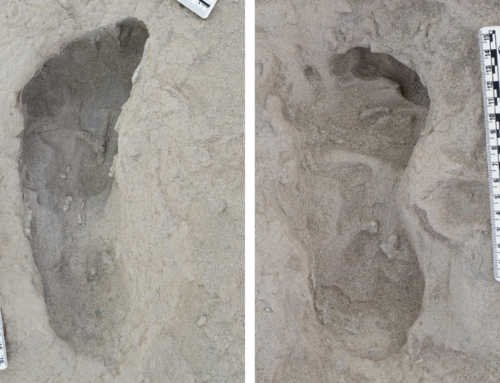The Turkana Basin Institute, in collaboration with the University of Bradford, has set up a web site fossilfinder.org, recruiting an army of ‘citizen scientists’ to help discover fossils and other ancient artefacts using the unique online platform “Zooniverse”.
fOssilfinder.org is a pioneering project, funded in part by the Arts and Humanities Research Council, enabling amateur fossil hunters to be part of a scientific team and make a direct contribution to developing knowledge about prehistory.
High resolution aerial imagery of fossil bearing surfaces was captured using a range of aerial platforms, including kites. These images have been uploaded onto an interactive website allowing online fossil hunters to examine the ground in minute detail. They can then mark on the images any objects of interest including rock types, fossil fragments or stone tools. These findings are submitted and will be used in the paleoenvironmental reconstruction of these landscapes.

Screenshot of www.fossilfinder.org
“In this exciting new approach, we are asking for help to document the fossil bearing landscapes, which will assist us in the reconstruction of past environments. This partnership between the public and the scientific team will be transformative to our research. More eyes, more information, more discoveries.” said Dr. Louise Leakey
Dr Adrian Evans, of the University of Bradford, project manager, said: “This is a really exciting project that will allow enthusiasts who can’t get to these remote places to be fully involved as ‘citizen scientists’, finding new fossils as primary research data.
Searching through thousands of high definition images on fOssilfinder, a citizen scientist is engaged directly in research and is provided with an experience and an understanding of the difficulties and challenges of finding fossil evidence used to interpret the past.
Fossilfinder is funded by the Arts and Humanities Research Council (AHRC) as part of its ‘Digital Transformations’ strategic theme. Professor Andrew Prescott of the University of Glasgow, the AHRC’s Theme Leader Fellow for Digital Transformations, commented: “FOSSILFINDER illustrates how digital technologies enable the public to become more closely engaged with cutting-edge humanities research. We all now have the opportunity to explore and understand artefacts which enable us to understand who we are and where we come from. I will be taking part, and I hope many others will join in as well.”
Fossil Finder www.fossilfinder.org is an output from the major AHRC Digital Transformations Theme Project ‘Fragmented Heritage’ www.fragmentedheritage.com. The project is led by Dr Randolph Donahue, Dr Andrew Wilson, and Dr Adrian Evans within the School of Archaeological Sciences at the University of Bradford, together with Dr Hassan Ugail from Visual Computing at the University of Bradford, and Dr Nick Ashton of the British Museum and Dr Louise Leakey, Director of Education and Public Outreach at the Turkana Basin Institute, Research Professor at Stony Brook University and a National Geographic Explorer in Residence.

